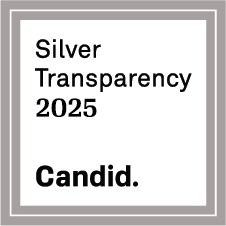A Grassroots Beginning
Quality Matters began with a small group of colleagues in the MarylandOnline, Inc. (MOL) consortium who were trying to solve a common problem among institutions: how do we measure and guarantee the quality of a course? This question was especially important as institutions began to create a system where they could share available seats in their online courses with other institutions. They needed a way to ensure course quality — that courses would be equivalent — for their students, regardless of where the course originated. In 2003 MOL outlined how the Quality Matters program could create a scalable process for course quality assurance, and applied for a Fund for the Improvement of Postsecondary Education (FIPSE) grant from the U.S. Department of Education.
The QM Process and Community Build Momentum
The FIPSE grant enabled QM to develop a rubric of course design standards and create a replicable peer-review process that would:
- Train and empower faculty to evaluate courses against these standards
- Provide guidance for improving the quality of courses
- Certify the quality of online and blended college courses across institutions
As word spread that there was now a tool for assuring quality across courses, more institutions became interested and involved in the QM process. By the end of the three-year grant period, we had trained 694 peer reviewers from 154 institutions in 28 states, and we had conducted more than 100 course reviews.
An Internationally-Recognized Program with Broad Appeal
Although the FIPSE grant ended in 2006, QM persisted as a self-sustaining program within MOL and was used to impact the quality of teaching and learning at a state and national level.
In the years that followed, more than 1500 colleges and universities throughout the world joined the QM community and used the HE Rubric to improve course design. We had also trained more than 60,000 education professionals on online course design standards, and certified thousands of online and blended courses.
Developing a Scalable Quality Assurance System for the Future
While QM could have been just another bound report on a shelf somewhere, everyone saw the the positive impact of the QM Rubric and peer review process. As a result, we expanded QM’s quality assurance tools and professional development to include organizations outside of the Higher Education sector, including K-12, continuing and professional education, course publishers, and education service providers. In 2014 Quality Matters began operating as a standalone nonprofit organization to broaden our reach worldwide, build new partnerships, and take on a greater leadership role as we continue to champion quality assurance in online learning and provide the gold standard for certifying the quality of online courses and programs.
Through annual member subscriptions and fee-for-service offerings, QM continues to support research, expand its offerings, and cultivate a community of professionals who are dedicated to quality assurance in online learning.
The QM Commitment
Today Quality Matters is a nonprofit organization comprised of a dedicated staff that works together virtually—from cities all over the United States—to support everyone’s quality assurance goals. But in order to truly achieve our mission of defining and maintaining quality assurance in online learning, we rely on our larger community of QM Coordinators, workshop facilitators, peer and master reviewers, program reviewers, conference presenters, and all the other individuals and groups who are champions for QM and help everyone deliver on the promise of online learning.
QM's Vision
Quality Matters is the global organization leading quality assurance in online and innovative digital teaching and learning environments.
QM's Mission
Promote and improve the quality of online education and student learning nationally and internationally through:
- Development of current, research-supported, and practice-based quality standards and appropriate evaluation tools and procedures.
- Recognition of expertise in online education quality assurance and evaluation.
- Fostering a culture of continuous improvement by integrating QM Standards and processes into organizational plans to improve the quality of online education.
- Providing professional development in the use of rubrics, tools and practices to improve the quality of online education.
- Peer review and certification of quality in online education.

